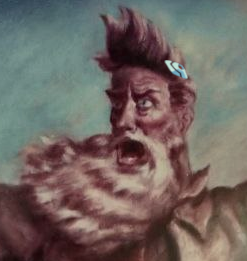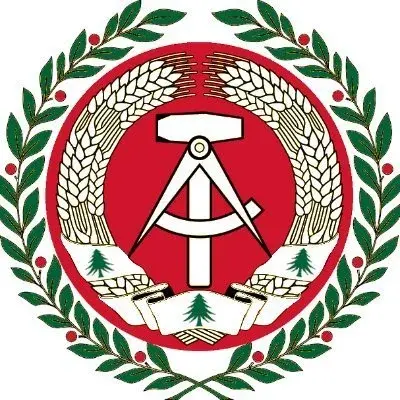My partner keeps trying to read it and they keep stopping and reading me passages and then looking up actual historical fact and going wtf, this book is nonsense? Does it get better?
I don’t know I haven’t read it. I told them I’d ask here. Does it get better? Is it anti communist propaganda or is the ridiculous anti communist screed that starts this book serious off just setup for something better?
Thanks for all the good answers I showed them the whole thread and they said a lot of what you all said is in line with their understanding. So basically the first bit is a caricature of the bad parts of early Chinese communism and then that gets better but it turns misogynist instead. Fun series. They’ll continue to read because we have a lot of family and friends who LOVE the book and they want to understand why but it’s helpful to have the lens on it
The beginning part of the book is a semi realistic portrayal of the cultural revolution tbh. I was talking to someone on here earlier about this. The early stages of the revolution weren’t in fact sunshine and rainbows, bad stuff did happen. Modern Chinese folks look back at it as a sorta shame and growing pains type deal and something they should learn and improve from.
That ability to accept fault and grow is something overall lacking in the west.
No, it is extremely popular in China and especially among the academic and elite circles.
A lot of the critiques about the Cultural Revolution is widely accepted within China itself (although there were still some parts that were censored in the 2022 Chinese TV adaptation). I mean, Xi himself was a victim of the Cultural Revolution.
If you want to know the author’s political position, check out his 2001 novella Full Spectrum Barrage Jamming, a short story about a war between Russia vs NATO (originally China vs NATO but the publisher refused to publish it, so the entire plot was re-written with Russia as the protagonist instead), and mostly reflects the post-Soviet era anxiety experienced by the Chinese/Russian in the 1990s under the total domination of the US.
However, like most Chinese boomers, he hates the typical “Western political correctness” stuff and it shows in his novels, but they have been largely edited out in the English editions so you won’t really come across them if you read them in English.
CW
I mean, Xi himself was a victim of the Cultural Revolution.
Does Xi label himself solely as that though? I do know that he says that due to his time spend in rural regions he came into more contact of the rural lifestyle and thus with working people there, he read more Marxist theory and became “redder than red guards” and sometimes references to that as quite important event for his political career. Though he, too, was publicly critiqued when he was 13 years old. That of course will leave some marks and effects.
His father was publicly “self” critiqued, demoted, imprisoned during the Cultural Revolution, but after wards restored, with one of Xi’s sister from his fathers first marriage potentially killing herself.
Does Xi label himself solely as that though?
How Xi defines himself is a matter of how the party wants to mythologize the head of the state because that person represents the party. The reason why Xi and the other person who got sideswiped by the party in bizarre circumstances Bo Xilai, represent the ‘‘populists’’ within the party in contrast of the more elitists clique of the party defined by Jiang Zemin and Hu Jintao. The reason why the populist managed to win is because of there are rampant corruptions within the party especially with the aftermath of the Sichuan Earthquake. This is why both Xi jinping and Bo Xilai play on their backgrounds as some grassroot organizer and some pseudo red guard ideology respectfully because CPC wants a new image to represent the party.
At the end of the day, it’s political theater and what matters for the people is really the policies
Bo Xilai ended up getting convicted on corruption charges as well though.
However, like most Chinese boomers, he hates the typical “Western political correctness” stuff and it shows in his novels, but they have been largely edited out in the English editions so you won’t really come across them if you read them in English.
I remember there being a bit where a 21st century cryosicle is thawed out in a post-scarcity 2Xth century, goes “Damn, these dudes have long hair,” and then it’s never brought up again. Was this a whole plot thread that was cut?
if you want to know the author’s political position, check out his 2001 novella Full Spectrum Barrage Jamming
The story does not really give a clear position on if the author support the USSR or any communist ideas. The tropes used describing the post-soviet state can be find in lightning balls too, but all the descriptions used are just normal talking point in Chinese mainstream media in the 90s as we watched USSR collapses, the Chechen Wars and the collapse of Yugoslavian state.
It has more to do with nationalism than actual any ideas of progressivism.
There is an interview on YouTube where the author gave an interview in the US about what he thought of Musk in which he said ''seeing there are still people like him gives him hope for humanity." There were also some statements about the nihilism and the hopelessness of his book in which basically saying there is no stopping to the mechanism of the world, progress. the fact that millions or billions of people have to die and we feel sad about it is just an opinion we express about reality which is inevitable.
Haven’t read the book but don’t we all hate identity politics though
“Identity Politics” gets thrown around so inconsistently I don’t even pretend to know what it’s supposed to mean anymore.
It usually means (from conservatvies at least) “vague idea from the left of me that I dislike”
These buzzwords are such nonsense to me
It means people saying “I am German” or “I am a butcher”, “I am christian”, “I am a cors drinking man” your welcome for my help.
It’s standard high intelligentsia (We are super smart and the people are wrong and stupid mobs) stuff. Yes the Cultural Revolution sucked and his take is based on non-representative examples of some of the worst excesses (I don’t think anyone was beaten to death for einstein, though), but the critique is similar to that of upper class Soviet intellectuals removed about how a mine worker earned as much as a doctor.
While still not wanting to work in the mines, btw. That’s the part that always kills me when I read these accounts, is the intelligentsia removed about how they did so well in school, and these damn workers are taking up so many resources even though they didn’t do well in school. There is no one going ‘Then you go work in the mines if you think it is that easy.’
The good (bad) part of the Cultural Revolution was that that would forcibly happen. Professors who complained how easy the peasants had it were literally kidnapped by student organizations and dropped off in the country side to fend for themselves. The problem was that it was massively disorganized and a pretty easy system to abuse, which also gave the professors no incentive to actually grade anything. But there was a short-time, where if you said bullshit, you ate shit for it, and no one ever forgot about it.
Professors who complained how easy the peasants had it were literally kidnapped by student organizations and dropped off in the country side to fend for themselves

i work in academia and i gotta say, there are a lot of people here who deserve to be deeply humiliated.
Yeah… about once a week when I am at school I hear something and find myself thinking ‘Maybe Mao was right.’ but that is generally an unhealthy thought. Especially since, as violent as the Chinese CR got, an American CR would likely be twice as bloody because we have basically no regard for our fellow citizens.
The best imaginable future for the Failed States of America is still an absolute fucking nightmare isn’t it
the Phsical ideas are really impressive but theres a bunch of wierd reactionary and mysogistic stuff in it , for example its always a woman that “fucks shit up”
I felt like it was patronizing as well, and thought that the one society in the future which was more androgynous (therefore less feminine) was throwing a bit of shade.
Nonetheless I think the protagonist of the final book was the one who used her caring and love (of course gendered towards a woman) to essentially solve the final and largest conflict of the series. Something that could not have been done with the other men who were shown to be either stoic or excessively macho.
The first book has quite a few flashbacks to the Cultural Revolution. Most are…fine I guess? There’s one that’s straight up ridiculous, and to the day I’m not sure if it was a joke or not.
Anyway, the books themselves avoid modern politics insofar as a book series with aliens can. It’s there, sure. But I wouldn’t say there’s any clear anti-communist slant. There’s some anti-western culture sentiment here and there though.
What was the ridiculous part? It’s been a while since I read the first book.
The ridiculous part is there are actual political interferences within high level states research institute. The CPC actually shelters all personnel who work on highly secretive projects (ei. space program and nuclear weapon program) and state level research for the fallout of the Cultural Revolution
If three body problem is ‘‘anti-communist’’ 90% of the Chinese people, 100% of the party members are also anti communists.
Cultural Revolution is not something Chinese people like to talk about. You’ll be lucky if you managed to ply your grandparents to say some stuff about it. If they do, and you asked them to put stuff into perspective with the Great Leap Forward, you’ll get more justifications for the death in the GLF than in the cultural revolution.
There is a reason why the party after Mao’s death decided to give some liberties to discuss it in negative light and then for the Party just goes in the late 90s to be like: ‘‘well, ok people we got it, you are right, now let’s shut the fuck up about it because you can buy a Parasonic TV, drink coca cola and go to KFC’’
If three body problem is ‘‘anti-communist’’ 90% of the CPC, 100% of the party members are also anti communists.
Some people might agree with this lol
The people who does don’t wield any power nor propose any appealing options to destroy this party
Hell yeah it is.
They absolutely drag the incredible good name of comrade Norman Bethune, pioneer of battlefield medicine and doctor who first served on the frontlines of the Spanish Civil War, later to travel to Mao’s China to provide desperately needed medical care and modern medicine to the Chinese people, only to end up dying in the line of work.
The book gives the crackpot scientist the nickname “Bethune” and I will never forgive the book for dragging the name of a heroic individual like that.
Mao upheld Bethune as a hero, as we all should.
You’re probably right about the intent, but I’d call that more of an obscure dig than a major smear of the actual person.
Bethune has multiple statues and memorials in China and there’s claims that he is revered by Chinese people for his dedication to them.
I’m no Sinologist so take that with a grain of salt but, if does happen to be true, then I feel like for the Chinese audience that Bethune reference wouldn’t be lost on the more historically-literate reader, at the least.
I imagine Bethune is thought of in China about the way Lafayette is thought of in the U.S., but yeah, I’m far from an expert myself.
The author is Chinese from the mainland so I doubt it
deleted by creator
You can be a nationalist and a conservative
Yeah, no contradiction there.
I love those books and am fine with that making me a radical centrist (on this website)
I can enjoy books without perfect politics because I do not insist on describing real events through the lens of fictional characters.
deleted by creator
They’re kinda cool conceptually but the writing (at least the translation) is corny and smells of silly action movies.
From a New Yorker article:
Joel Martinsen, the translator of the second volume of Liu’s trilogy, sees the series as a continuation of this tradition. “It’s not hard to read parallels between the Trisolarans and imperialist designs on China, driven by hunger for resources and fear of being wiped out,” he told me. Even Liu, unwilling as he is to endorse comparisons between the plot and China’s current face-off with the U.S., did at one point let slip that “the relationship between politics and science fiction cannot be underestimated.”
Link here
This article also has some questionable (racist?) stuff. Like what does he mean by ‘Chinese society’?
“Types are central to the way Liu thinks of people; he has a knack for quickly sketching the various classes that make up Chinese society.”
Some more:
“Much of the books’ resonance, however, comes from the fact that they also offer a faithful portrait of China’s stringently hierarchical bureaucracy, that labyrinthine product of Communism.”
This is the worst offender:
“Liu closed his eyes for a long moment and then said quietly, “This is why I don’t like to talk about subjects like this. The truth is you don’t really—I mean, can’t truly—understand.” He gestured around him. “You’ve lived here, in the U.S., for, what, going on three decades?” The implication was clear: years in the West had brainwashed me. In that moment, in Liu’s mind, I, with my inflexible sense of morality, was the alien.”
He also talked about a million Uyghur’s in re-education camps, the one child policy, and cremation as opposed to burying people in the ground.
China’s stringently hierarchical bureaucracy, that labyrinthine product of Communism.
damn that internalized orientalism goes hard
Luckily my company got no hierarchies, nor do the parties I can’t get into, nor is politics hierarchical.
Actual historical records show that Red Guards publically denounced, beat, and even (on occasion) murdered teachers during the Cultural Revolution.
I’m wondering what sources your boyfriend is consulting that claim otherwise.
I do find it funny and way too on the nose that the only ee poster that showed up here misgendered my partner
Apologies. I have no idea why I assumed your partner’s gender - my brain apparently just filled in the blanks by itself.
Thanks for owning up to it!
I don’t think that is the part that they are disputing but it could be, as it is unclear what they are disputing.
That said, alot of what happened in the Cultural Revolution was ‘Talk shit, get hit.’ Which isn’t exactly a great disciplinary system, especially when it can be based on hear-say.
The beginning of the book is set in the Mao era and doesn’t shy away from its awfulness. If that counts as propaganda to you, 🤷♂️
Are you from the US? How often have you read stories as such for the Kent State massacre, the Battle of Blair Mountain, or the drowning of the hundreds in the Seine in Paris?
It does more than show what was at a point in time, it is powerful propaganda, as your comment shows. Not only do you use “Mao era”, but also imply that it was awful. Which is quite a big stroke used.
Besides that there are ways to frame scenes, the one’s in the three body problem have the problem that they are leading and are part of fiction, yet people take them for depictions of reality and construct their idea of what was from it.
Within the CPC the Cultural Revolution - rightfully - got critiqued quite a bit and the phrase in regards to Mao of “70% good, 30% bad” is still common.
Lol
Lib
Let me save you 35 hours and just tell you that the book series is the equivalent of two 12 year olds playing top trumps with pages ripped out of a theoretical physics textbook.



















